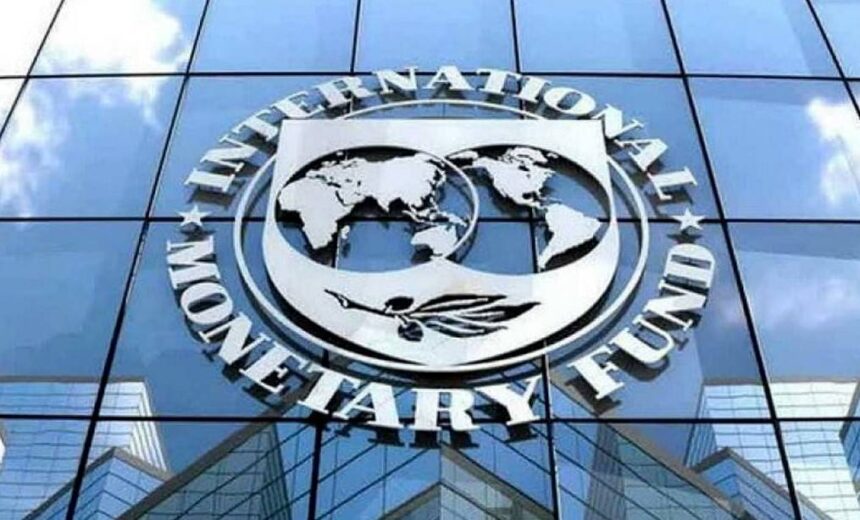The International Monetary Fund (IMF) must remain committed to its core mandates—expanding global trade, promoting growth, and addressing economic vulnerabilities—according to the chair of its key policy advisory body, amid a complex global economic backdrop.
Speaking at a press conference during the IMF and World Bank Spring Meetings in Washington, Saudi Arabia’s Finance Minister Mohammed Al-Jadaan, who chairs the International Monetary and Financial Committee (IMFC), emphasized the need for the IMF to continue its essential work in guiding economic stability and development, especially in lower-income and vulnerable nations.
The IMF must remain laser-focused on its core mandates. That includes supporting trade expansion, economic growth, and tackling debt sustainability issues around the globe,” said Al-Jadaan.
Debt Relief for Vulnerable Economies Remains a Priority
A central theme of the IMFC’s message was the urgent need to manage rising debt levels, particularly in low-income and fragile states. As global interest rates remain elevated and external financing conditions tighten, many developing economies face mounting debt distress.
Addressing global debt vulnerabilities remains a priority for our members,” said Al-Jadaan. “This is especially critical for low-income and vulnerable countries that continue to feel the aftershocks of recent global crises.
The IMF has been working through mechanisms like the Common Framework for Debt Treatments and the Resilience and Sustainability Trust to offer both short- and long-term solutions to countries facing fiscal pressure. Al-Jadaan urged member nations and international institutions to coordinate and bolster these frameworks, while also pushing for more timely and effective debt restructuring processes.
Renewed Engagement on Global Conflict and Stability
Al-Jadaan also noted that international cooperation is expanding beyond macroeconomic policy to broader stability efforts, citing discussions around Syria as an example. Conversations on post-conflict recovery and economic integration have sparked a renewed sense of urgency among members to ensure that peace and economic revival go hand-in-hand.
“Gathering members to talk about Syria has provided a renewed purpose—to turn a conflict zone into a stable, economically successful country that can contribute to regional and global prosperity,” Al-Jadaan stated.
The IMFC emphasized that while financial support remains crucial, the path to recovery also depends on effective governance, institutional reforms, and capacity development.
Building Capacity Through Knowledge and Data
Beyond financial resources, Al-Jadaan stressed the critical role of the IMF in providing technical support to member countries. “It is not just about the money,” he said. “It’s about the work that I and other partners can deliver in capacity development, quality data, and timely advice.”
The IMF’s technical assistance programs and economic surveillance have become even more valuable as countries navigate uncertainties stemming from geopolitical tensions, climate change, and evolving financial markets. Enhanced data analytics, tailored policy advice, and knowledge sharing are seen as core to building long-term economic resilience.
Reinforcing the IMF’s Relevance in a Changing World
The IMFC’s statement reinforced that the IMF’s relevance hinges on its ability to adapt to the evolving needs of its member nations while remaining rooted in its foundational goals. This includes addressing cross-border challenges such as inflation, digital transformation, and climate-related financial risks, without straying from the Fund’s original mission.
As the global economy adjusts to new patterns of inflation, supply chain reconfigurations, and shifting monetary policy landscapes, the role of multilateral institutions like the IMF is more vital than ever.
“We must ensure the Fund is agile and responsive, yet always grounded in its core mandates,” said Al-Jadaan. “This is essential for maintaining global financial stability and fostering inclusive growth.”
Looking Ahead
The IMFC’s call to action comes at a pivotal time for the global economy. With persistent inflation, geopolitical tensions, and financial market volatility posing challenges, member countries are looking to the IMF for leadership, support, and stability.
By staying committed to its core mandates—expanding trade, promoting economic growth, supporting debt sustainability, and delivering technical expertise—the IMF is positioning itself as an indispensable force in shaping a stable and inclusive global economy.
As Al-Jadaan concluded, “The work of the IMF is more important today than ever before. Staying focused on what it does best will be the key to meeting both current and future challenges.”
Follow 10X Times to stay updated with latest business news.






